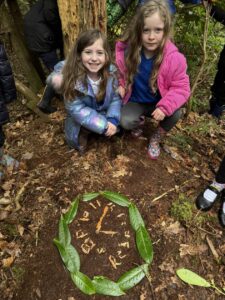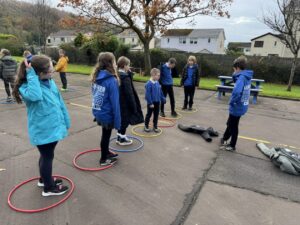“Mathematics is important in our everyday life, allowing us to make sense of the world around us and to manage our lives. Using mathematics enables us to model real-life situations and make connections and informed predictions. It equips us with the skills we need to interpret and analyse information, simplify and solve problems, assess risk and make informed decisions.”
Curriculum for Excellence, May 2009


Pupils progress through activities designed to equip children with skills required for life, learning and work. At all stages, we aim to make learning in numeracy and maths as active possible and linked to real-life, practical situations. Mathematics includes specific aspects of numeracy which will be developed both in mathematics and through activities in other areas of the curriculum. Learning in numeracy and mathematics involves a variety of topics organised under 3 main headings:
- Number and number processes
- Multiples, factors and primes
- Powers and roots
- Fractions, decimal fractions and percentages
- Money
- Time
- Measurement
- Mathematics – its impact on the world, past, present and future
- Patterns and relationships
- Expressions and equations
- Shape, position and movement
- Properties of 2D shapes and 3D objects
- Angle, symmetry and transformation
- Information handling
- Data and analysis
- Ideas of chance and uncertainty
Active Learning opportunities are provided, to allow pupils to improve and deepen their understanding of mathematical concepts. Pupils have the chance every day to engage with Number Talks, allowing them to articulate their strategies for solving number based problems in both familiar and unfamiliar contexts.


